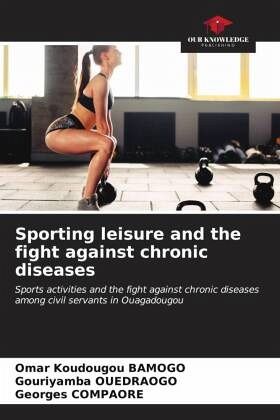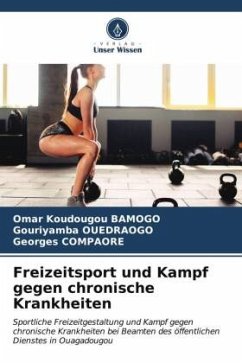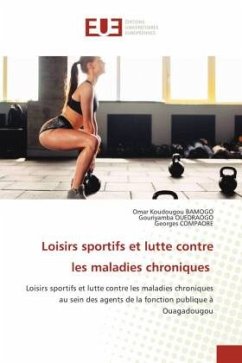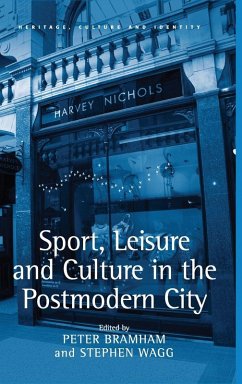
Sporting leisure and the fight against chronic diseases
Sports activities and the fight against chronic diseases among civil servants in Ouagadougou
Versandkostenfrei!
Versandfertig in 6-10 Tagen
29,99 €
inkl. MwSt.

PAYBACK Punkte
15 °P sammeln!
Preserving and restoring health has always been a central concern in the practice of leisure sports (physical and recreational activities). This is all the more important in the fight against so-called sedentary and physically inactive diseases, which are particularly prevalent among civil servants. In fact, civil servants have very sedentary and inactive lifestyles. This situation is conducive to the onset of numerous Non-Communicable Chronic Diseases (NCCDs), such as arthritis, diabetes, hypertension and cardiovascular strokes. With this in mind, we formulated the hypothesis that several fac...
Preserving and restoring health has always been a central concern in the practice of leisure sports (physical and recreational activities). This is all the more important in the fight against so-called sedentary and physically inactive diseases, which are particularly prevalent among civil servants. In fact, civil servants have very sedentary and inactive lifestyles. This situation is conducive to the onset of numerous Non-Communicable Chronic Diseases (NCCDs), such as arthritis, diabetes, hypertension and cardiovascular strokes. With this in mind, we formulated the hypothesis that several factors limit the practice of leisure sports by civil servants in the city of Ouagadougou, even though these free-time activities could help to contain the rise in NCDs among them. Thus, we sought to determine the conditions and level of practice of leisure sports within this target group, as well as the impact of this practice on the said chronic non-transmissible diseases. To achieve this, weconducted a study based on a questionnaire sent to one hundred and twenty-one (121) civil servants in the city of Ouagadougou. We also conducted interviews with technical managers in the sports, leisure and health sectors. The results show that the practice of leisure sports remains low among civil servants in Ouagadougou. These results confirm that the practice of leisure sports can be an effective means of combating MCNT.












